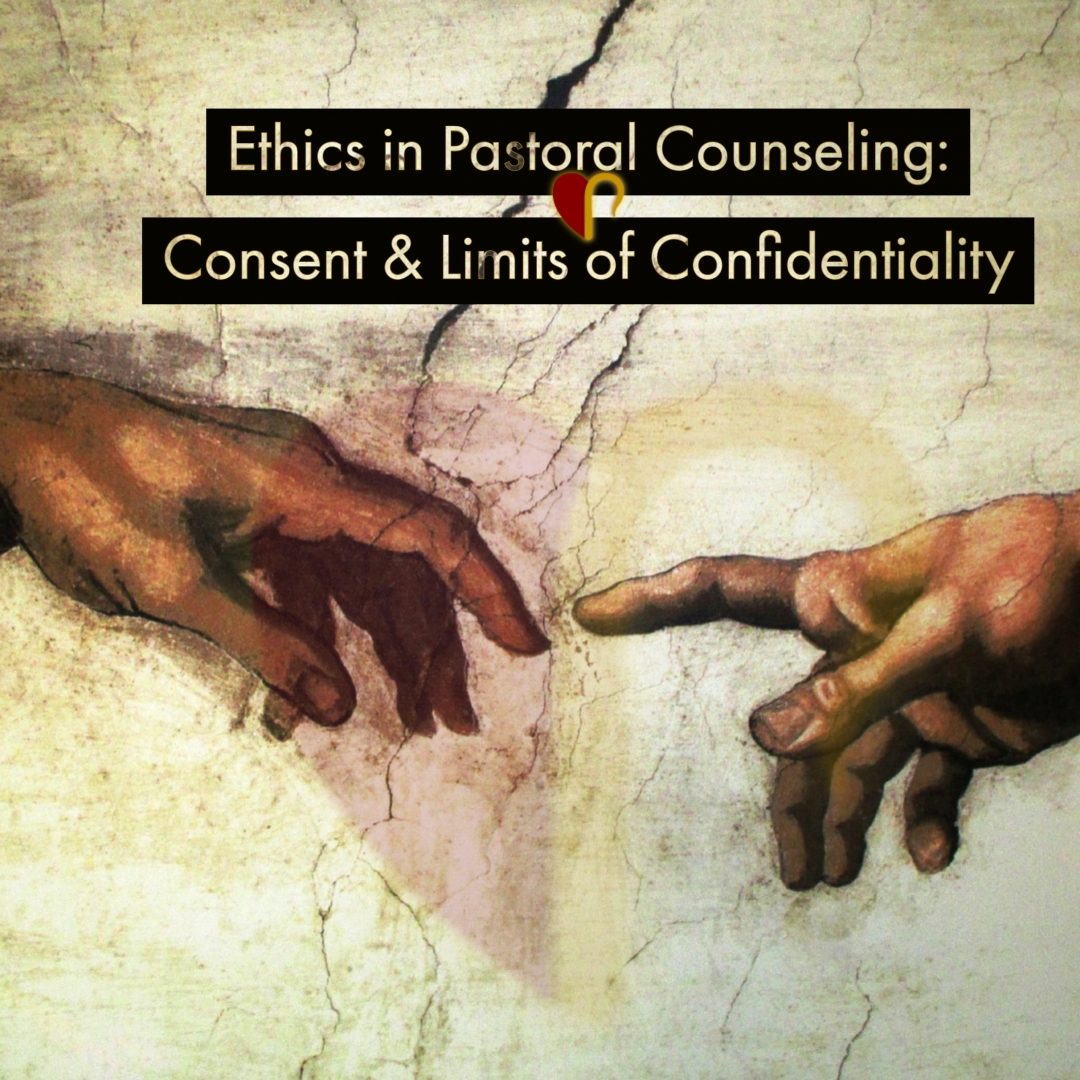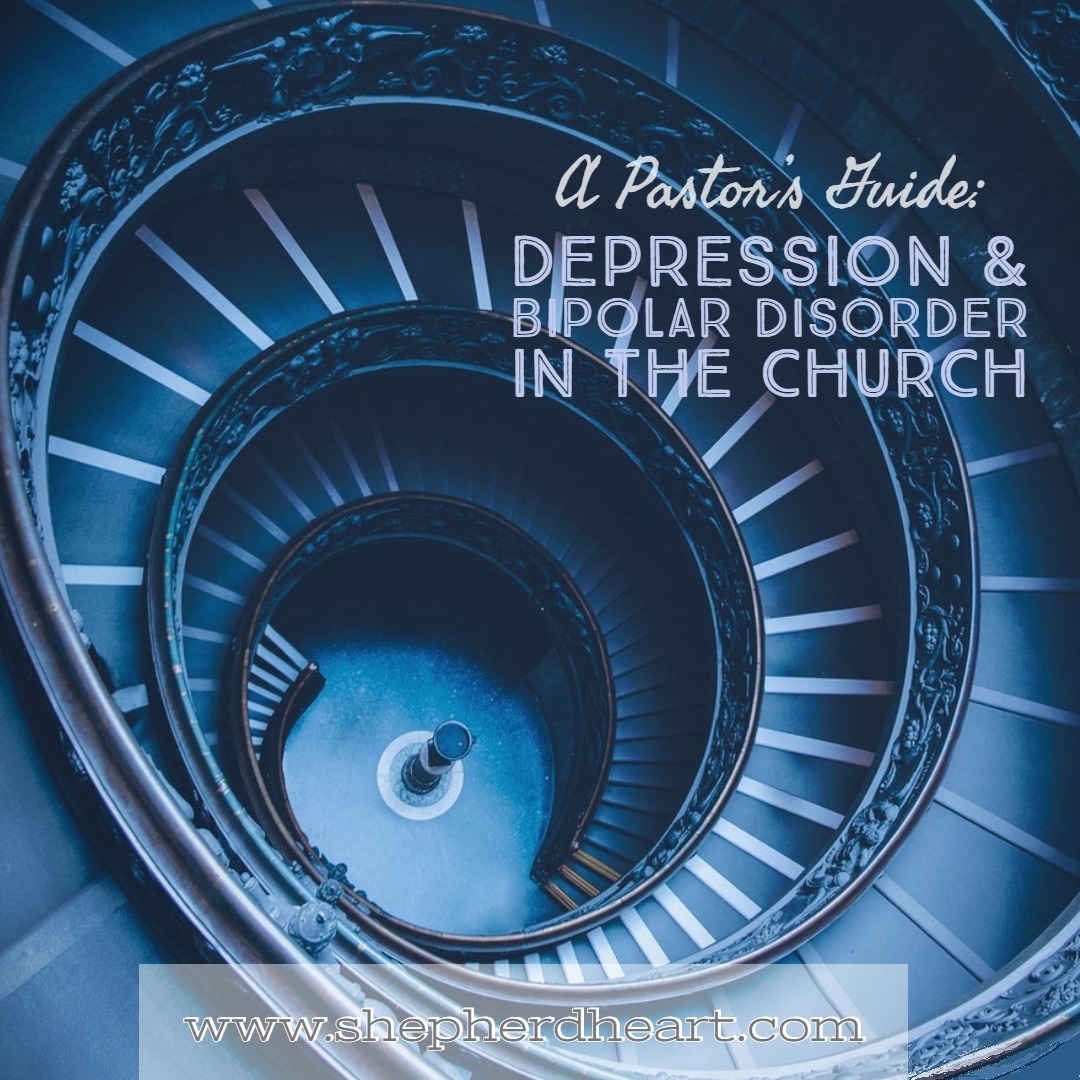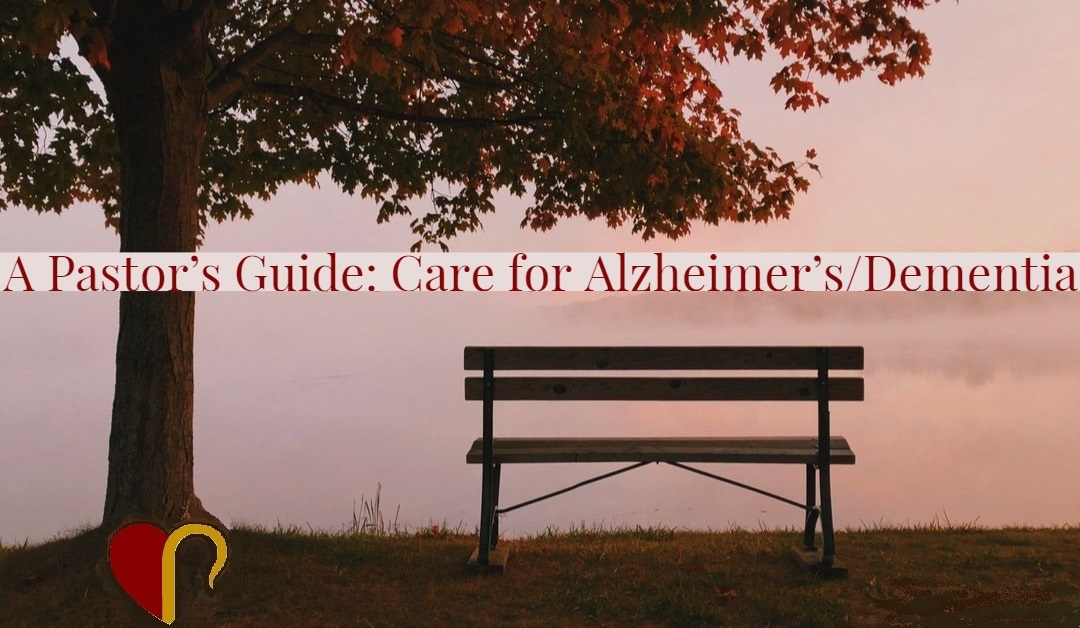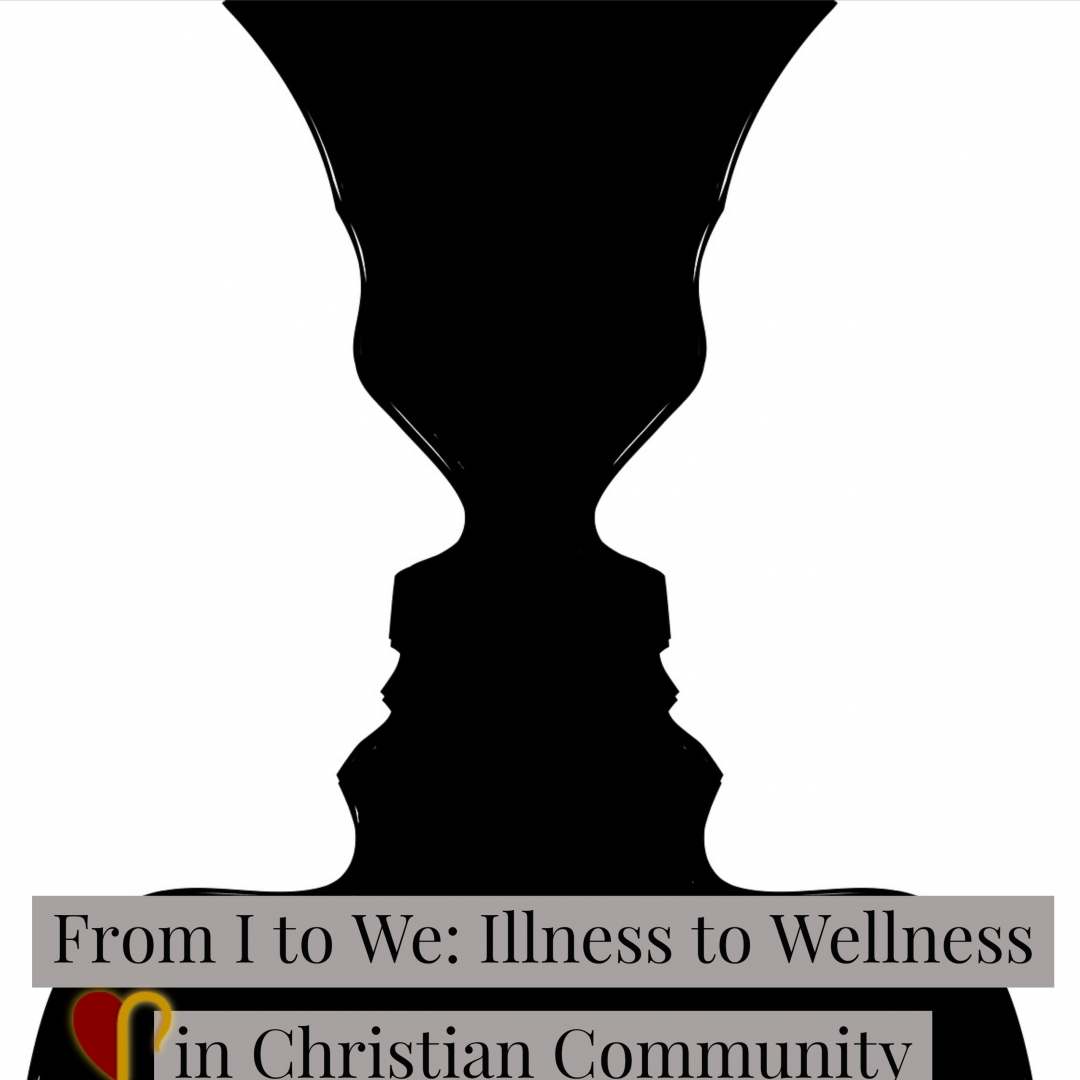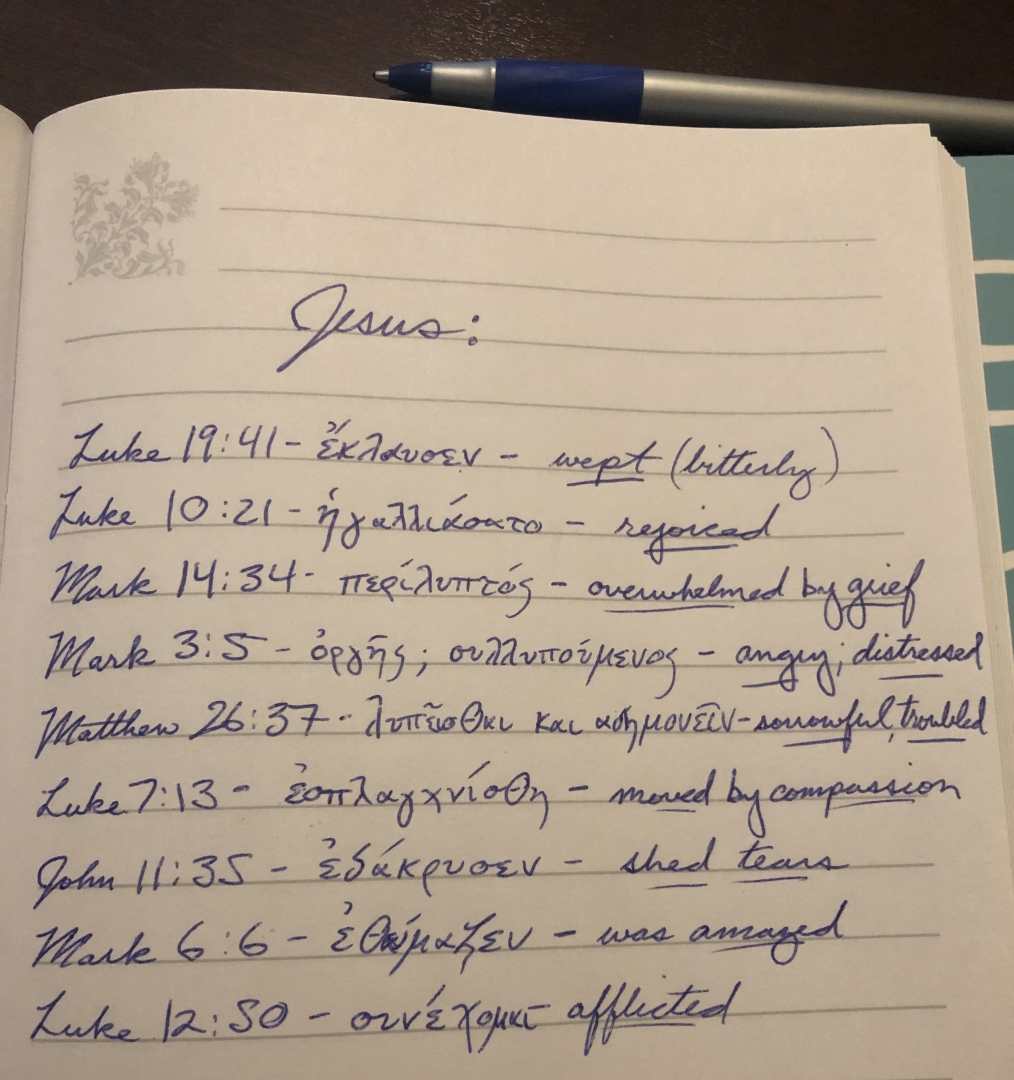Things Pastors Tell Me in Therapy
by Jay Pope, PhD
The greatest privilege I have had in my 15 years as a clinical psychologist is my having worked closely with many pastors and missionaries in therapy. This is why I and several of my students at Fresno Pacific University are looking forward to soon publishing the results of an ambitious study of pastors taken from over 30 years of archival data on a wide variety of issues that pastors face, and some of their most common concerns. Based on our initial results, pastors and missionaries are reporting many of the exact same things on paper that they tell me when I counsel them. The following are the issues that come up most frequently when I counsel pastors and when I read what they have written in their completed questionnaires, checklists, and personality tests.
“Base Rate” Issues:
Pastors and missionaries suffer from the same kinds of issues that affect millions of other Americans. That is what we mean by the base rate: the likelihood of any issue affecting any person in the general population, regardless of what group is currently being studied. The pastors we’ve studied frequently have anxiety disorders, substance abuse problems, mood disorders (such as depression or bipolar disorders), personality disorders, stress disorders, marriage problems, and parenting problems. For those suffering with substance abuse, alcohol is by far the most frequently abused substance among the pastors I’ve worked with. Our archival data suggests that a history of drug or alcohol abuse in pastors is strongly linked to current psychological problems, regardless of current usage. Pain killers and marijuana are increasingly being abused by pastors. Sexual problems, sleep difficulties, financial problems, and health problems are also frequently listed as concerns over and above their primary mental health issues.
An important trend I’ve noticed: Pastors who cope with mental health issues most effectively are the ones who have already preached from the pulpit on topics pertaining to mental illness and who have created a culture of intelligence, self-care, and normalcy around the topic of mental health and mental illness. When this has already happened, their church is better prepared to support those with mental illness in their midst, and they are also more able to help their pastors when they go through difficult times. Eventually, should the pastors feel comfortable sharing openly and appropriately about their own struggles (this can feel risky), they are often surprised to find that their congregations are more understanding and supportive than they might have guessed, and their relationship with the congregation can potentially become even closer after openly having gone through their season of difficulty. It can also be a good opportunity to model self-care to the congregation and to frame this as an issue of stewardship and sabbath. An important mitigating factor in this regard, however, is the quality of the relationship between the pastor and the church’s governing body (e.g., board, session, elders). If these relationships are healthy and mutual trust is strong, occasionally sharing about one’s personal struggles from the pulpit leads to healthier outcomes, regardless of the issue of concern. But if the pastor’s relationship with the governing body is already strained, or if a mental health culture has not already been created, pastors tend to have a tougher go of it. Their church may respond to vulnerability/weakness by turning on the pastor. This is especially the case when pastors have previously taught or preached about mental illness from a perspective that frames mental illness as a direct consequence of sinful choices. In those situations, pastors find that their spoken attitudes about mental illness have now painted themselves into a corner and their psychological issues will now be used as leverage against them. Indeed, this potential exists whenever pastors speak out against vulnerability and weakness and only champion a success, power, and prosperity narrative. It frequently comes back to bite them. I have seen it happen many times.
In addition to normalizing mental health problems and investing in self-care, pastors need to become increasingly aware of how many people in their congregations are suffering from mental health problems. These issues not only affect church members personally, they can significantly affect how fully parishioners are able to participate in the life of the church. For example, does the pastor know that at least several church members leave church immediately after the service because they are either painfully introverted or because fellowship and chit-chat with other members in the fellowship area elicits significant anxiety? Or do pastors know how much lapsing church attendance in a congregant can be a sign of depression or social anxiety and not just a sign that someone is losing interest or having a crisis of faith? Does a pastor know that sudden, dramatic personality changes in their parishioners are almost always related to brain or cardiovascular illness (e.g., tumor, CTE/concussions, stroke)?
Pastors also need to know that as workers in a so-called “helping profession”, they are at increased risk for burnout, stress disorders, cardiac illness, and trouble with establishing and maintaining healthy boundaries. Keeping healthy is imperative. Pastors are also at risk of developing what is often called Imposter Syndrome, a condition in which sufferers become erroneously convinced that they are frauds with very little to offer in the way of expertise or competence, and that they are on the verge of being found out, exposed, and humiliated. This condition affects pastors frequently because the success and effectiveness of pastors is generally (and most optimally) measured in the qualitative changes in the lives of the people around them, and not in more conventional or apparently more “concrete” indicators of success- such as amount of money raised, the size and quality church facilities, church attendance, or “number of people saved.” It is difficult to capture a pastor’s or missionary’s true successes and accomplishments on a resume; “changed lives” can be difficult to measure. And this is part of the problem. However, one encouraging aspect of Imposter Syndrome is that it usually only affects people with integrity, competence, and skill, and not people who are actual frauds. Charlatans and narcissists, by their very definition, do not suffer from imposter syndrome. For pastors who have imposter syndrome, it is essential to re-connect them with their goals and areas of emphasis in ministry– to have them write down all the many ways God has blessed people in their church community (a kind of historical testimony of church members), and to create a list of successes and achievements that are measured by Kingdom standards and not worldly standards.
Staff Issues:
One of the most serious issues that affects pastors is unhealthy relationships with associate pastors, staff, board members, and powerful members. Indeed, these problems rank near the very top of the most anxiety-provoking and distressing problems I’ve witnessed with pastors. It is a leading cause of resignations, firings, job searches elsewhere, or departure from ministry altogether. In addition to taking a damaging toll on pastors and their staff, these problems often cause significant marriage problems, as spouses have to deal with the consequences of these troubled relationships and, by virtue of their nearness to the situation, spouses experience some of the same distressing feelings.
The main sources of unhealthy relationships between pastors and other staff members include:
—An authoritarian, autocratic, and overly-demanding leadership style in the senior pastor. Fear of losing control, hyper-competitiveness, and unresolved childhood issues of rejection, emotional abandonment, or abuse are often found in these pastors. They don’t come to therapy very often because submitting to any act of vulnerability is unthinkable for them. They often attract people with low self-esteem or a fragile self-image.
—Narcissism and/or deep insecurity in a senior pastor who stymies growth in the staff and is envious of the success of other staff members. In contrast, a healthy pastor thinks frequently about the growth, development, discipleship, maturation, and professional future of junior staff, and knows that their successes are the pastor’s success.
—Disrespect and devaluation of worship pastors (and their input) by their senior pastors, despite having sound theological training & credentialing. Healthy pastors respect the training and education of other staffers and work closely with them on macro-level issues (vision) and micro-level issues (e.g., how the songs selected by the worship pastor or music director can effectively integrate into the theme of the sermon). Conversely, worship pastors who overplay their hands and/or develop a style of worship that distracts or departs from the themes of the sermon can be an endless source of frustration for pastors.
—Insufficient pulpit time allotted to associate pastors, or only offering them pulpit time on low-priority Sundays. Healthy pastors know how to balance the desire of the church members to hear their senior pastor preach with the need to give associate pastors time in the pulpit- to grow as professionals, become more comfortable with their teaching authority, and to develop greater visibility within the congregation. Furthermore, healthy pastors are not rigid in their roles and are comfortable with some experimentation across a variety of roles in the church.
—Gossip, triangulation, and divisiveness among associate pastors or other staff members against the pastor, building unhealthful alliances and factions among congregants or other staff against the pastor. Triangulating, especially after only few or feeble efforts were made to reach out to the pastor to discuss the problem, is damaging. Speed Leas (1985)[1] once argued that if a pastor is on vacation, sabbatical, or leave, and the church holds an “emergency meeting” in the pastor’s absence, this is a sign of extreme toxicity in the church and often results in a severed relationship with the pastor shortly thereafter. I would take this a step further and say that almost all secret meetings called by staff members or congregants that are designed to raise concerns about the senior pastor are unhealthy. Many of the pastors I have counseled have said that this kind of passive-aggressive behavior happens to them frequently. The people that call these meetings defend themselves by saying “I don’t feel safe talking directly to the pastor.” While this may be true in some cases, in most cases I’ve observed, people come to this conclusion too quickly and end up justifying what amounts to gossip and disloyalty with very little difficulty.
—Intimidation by a pastor or an associate that discourages communication when grievances and concerns otherwise need to be healthfully aired.
—Passivity or over-alignment of a board with the pastor’s agenda. This is especially concerning if several board members have recently resigned because of conflict with the pastor, and the pastor views this development as a good sign because the board is now more uniformly aligned with the pastor.
—Excessive control, skepticism, or downright hostility from a board toward the pastor’s agenda- or a board’s predetermination of the pastor’s unfitness for ministry, in the absence of clear indicators of moral failure.
—Self-perception of moral or theological superiority from an associate pastor over the senior pastor, with the belief that “I could do a way better job than this pastor”, or who makes plans to supplant the pastor or split the church by taking his or her loyalists away. Healthy associates should not ask, Why am I not in charge of this church? as much as they should ask What can I learn from this pastor’s gifts? (This is very closely related to the common occurrence in athletics when superior and confident teams overlook and underestimate their opponents and are beaten. Overconfident teams say They can’t beat us! when they should be asking Why is this team still alive in this tournament and winning games?)
—Role confusion, ambiguous job descriptions/responsibilities, lack of quality pastoral evaluation, and “bait and switch” hiring practices (employing pastors for a particular role, but then assigning them to something else once they arrive). With respect to a quality evaluation process for all pastors, healthy churches not only participate in the assessment and evaluation process, they use it as an opportunity to empathize with another person’s dreams and goals. Healthy pastors strike a good balance between having people stick with their primary roles and having people try something different.
—Unresolved psychological or emotional needs among pastors from their younger years, that they try to resolve through their work. This often results in decisions being made in consideration of the pastor’s own emotional self, more than the welfare of the church body– that is, when pastors are more concerned with managing their needs than their role. Healthy pastors are aware of how they might be unfairly relating to their spouse, their staff, or their congregation primarily as a fulfillment of unfulfilled needs from their past, rather than loving them as they are and as God sees them.
—Doubt about the pastor’s work ethic or integrity, resulting either from the pastor not working the pledged number of hours, or not clearly documenting the hours she or he has worked. Many pastors I know work 16-hour days or more, but too few in the church know it. Other pastors I know are working far fewer hours than they let on. There are many opportunities for pastors to “hide” from oversight, which is ideal from the perspective of avoiding micro-management, but dangerous when there is no accountability. Healthy pastors communicate very well with their administrative staff regarding their whereabouts, their availability, and their need for privacy. A key here is perceived availability and its relationship to scarcity. If a congregation perceives their pastor to be difficult to reach, they will invariably call the pastor even more. If the congregation perceives their pastor to be frequently available, they will tend to bother the pastor less with trivial matters. As a rule, it is better to over-advertise availability, but to increasingly delegate, as trust with one’s staff grows. That latter point underscores the importance that pastors not “over-function” for their churches.
—Poor interpersonal relating by the pastors with staff members (and congregants) of the opposite sex; pastors who do not behave professionally, or who engage in inappropriate comments or misconduct toward other staff members (or congregants). Sexual harassment in the church is a common problem and is vastly underreported. Healthy pastors not only champion the contributions of all church staffers and congregants, they deal with unsafe work environments swiftly and hold themselves to the highest standard of ethics. When pastors are lax in these areas- or joke about them- it not only makes other feel unsafe, it opens the door to unwanted sexual advances from parishioners. One of the most frequent problems that male pastors have divulged to me in therapy is female church members coming on to them sexually and often aggressively. One of the most frequent problems female pastors have divulged to me in therapy is their being victims of sexual harassment or assault from male pastors or their supervisors. It is imperative that pastors do enough to maintain healthy boundaries so that people would find a false sexual accusation impossible to believe anyway. Not only should pastors never engage in such destructive behaviors, they shouldn’t even joke about it. Ever.
—Lack of regular communication by pastors to their staff, associates, and congregation (newsletters are a particular point of stress for missionaries!), and insufficient time spent by pastors in training and discipling them. We are in the midst of an epidemic shortage of discipleship in the church. A strong wave of anti-intellectualism in the church over the last 30 years has resulted in a drastic decline in the number of pastors who attend seminary, who undergo discipleship training from a senior pastor, or who submit themselves to intense training or continuing education as a pastor. Almost every pastor I see in counseling is starved for more opportunities for personal, professional, and spiritual growth. All are in need of discipleship. Few know the first place to turn for such training. Healthy pastors are almost obsessed with clear communication with staff and with creating a culture of growth in each of them.
—Isolation or withdrawal from others in the church by pastors. A common symptom of unhealthy relationships among pastoral staff is loneliness/isolation. This is true both at work (where it is perceived that few can be trusted) and at home (where it is perceived that few can understand). Healthy pastors have found ways to meaningfully connect with people who matter.
—Conflict avoidance. When the staff start viewing disputes with each other at church as implacable conflicts and start using language like “I need to win this battle on principle” or by referring to adversaries as “evil”, “a monster”, or “a cancer” whose “toxic” presence needs to be removed, this is a red flag. As a rule, as soon as a pastor or staff member starts believing themselves to be a martyr whose task is to save the church from the destructive influence of another staff member, board member, or congregant, it has gotten too far out of hand. Sadly, I have seen this happen regularly. Ironically, most of these issues stem not from being too conflicted, but from being too conflict-averse. A healthy pastor normalizes conflict, sees it as being necessary for growth, and deals with problems as they happen without being punitive or calling too much attention to them.
—Hiding or avoidance by a pastor. When preaching on Sunday morning is significantly more fun for the pastor than the workaday responsibilities of being a pastor during the week, this is a sign that things are unhealthy. This feeling often happens in pastors who feel like they cannot manage their staff or the administrative tasks of the church. It is a sign that they are losing control of a situation that has begun to fester. A pastor who temporarily finds respite in the pulpit (away from the slinging arrows that are shot during the week) is probably not being an effective leader to the staff or congregation. Of course, this is not to say that preaching is unimportant or that it is not a source of great joy for pastors. Rather, if a pastor is avoiding conflict and “hiding behind the preaching,” this is a concern.
—Feelings of betrayal. Of all the negative feelings pastors have shared with me about their church relationships, betrayal is the most common and probably the most painful. I cannot count the number of times pastors have wept in my office over a cruel betrayal perpetrated to them by another member of the staff, board, or congregant. Pastors are in a very difficult situation as it pertains to unfair criticism. Anyone else would be expected to fight back and defend themselves. Pastors can fight back, but generally, they must either do this reluctantly or only after exercising judicious, careful consideration of the consequences. Pastors are advised to respond to hurts and betrayals in a one-on-one meeting with the offender. Public excoriation from the bully pulpit is rarely effective and usually backfires.
Other Findings from My Practice:
Housing Issues: An issue that comes up again and again for pastors and missionaries is the desire to own a home or to have a “home base” for retirement, furlough, or to occupy between pastorates. This is an issue that few young pastors and missionaries seem to think about, but as they near retirement, the longing for a place of one’s own and to be on firmer financial footing becomes very strong in most pastors I know.
Health Issues: Pastors are under a great deal of stress and many with whom I’ve worked have health problems that make their jobs more difficult. Dietary and exercise regimens can be difficult to keep given the changing, complex demands made on a pastor week to week. In therapy, I frame this as a stewardship issue. I tell them “You don’t use a silk dress to wash a car.” That is, you do not take a bright, educated, caring, competent minister of the gospel and run that minister into the ground before age 50. Premature death because of negligent self-care is not part of a pastor’s sacrifice. Take care of yourself. Furthermore, know what self-care means for you.
Games and Travel: Without question, the happiest moments from the lives of the pastors I’ve worked with come from memories associated with spending holidays together as a family, traveling as a family, and—somewhat surprisingly, playing games (cards, board games, e.g.) with friends and family members. Game nights were specifically listed by the pastors we studied as being the happiest of all memories from their own childhoods, and yet many of them do not continue this practice with their own families. Schedule family fun nights regularly—even with those reluctant teens.
[1] Speed Leas, Moving your Church through Conflict
Dr. Jay Pope is a psychologist, an ordained elder in the Presbyterian church, and has twice served as Psychology Department chair at Fresno Pacific University, where he has taught since 2005. He is a graduate of Westmont College (BA, Communication Studies) and Fuller Theological Seminary (MA, Theology; MA Psychology; PhD Clinical Psychology). In his work as a therapist, he frequently serves pastors, and can be reached at Link Care Center in Fresno, California. He also has a private practice in Encinitas.
Take a look at upcoming events & ministries at Shepherd Heart. Share in the Shepherd Heart vision & mission.
If you support the vision and the mission of Shepherd Heart, you can give a gift to sustain its ministries.
Shepherd Heart is *not* a 501c3, and therefore gifts are not tax-deductible at this time. Your gifts of any amount are deeply appreciated.









